Weathering Katrina
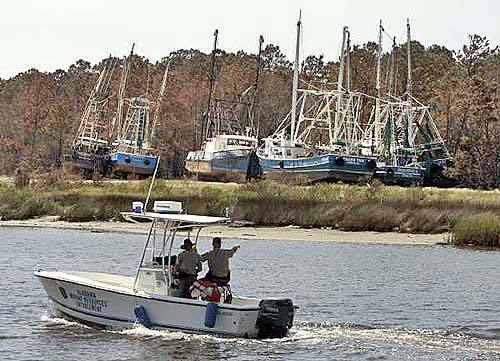
Alabama Marine Resources Enforcement officers look over boats that were grounded by Hurricane Katrina in Bayou La Batre, Ala. The storm took 85-foot fishing vessels and tossed them ashore. (Genaro Molina / LAT)
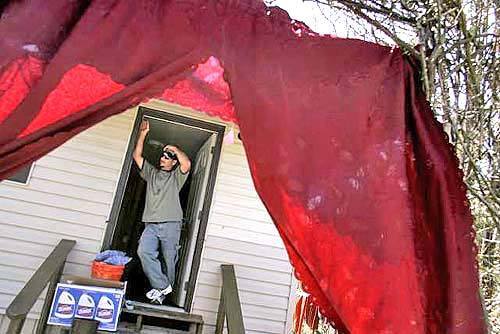
Milton Lyons’ house in Bayou La Batre, Ala. was flooded in the aftermath of Hurricane Katrina. He has been sleeping in his car as he waits for things to return to normal. Power has come back sporadically in the town, sometimes on one side of a street but not the other. The water level in more than 800 homes was 4 feet or deeper. (Genaro Molina / LAT)
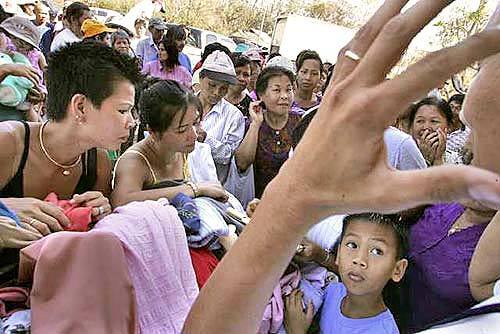
Members of the Vietnamese community in Bayou La Batre, Ala., wait for food donated by the Hollinger Island Baptist Church. Nearly a quarter of the towns population comes from Vietnam, with another 10% hailing from Laos and Cambodia. Almost all the new immigrants also are involved with the seafood business. (Genaro Molina / LAT)
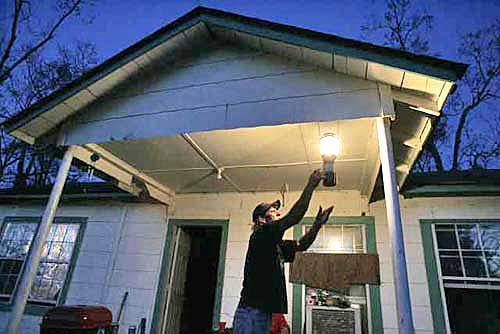
Mark Zirlott places a propane lantern on the porch of his home in Bayou La Batre, Ala. His family has been living without electricity for almost two weeks. (Genaro Molina / LAT)
Advertisement
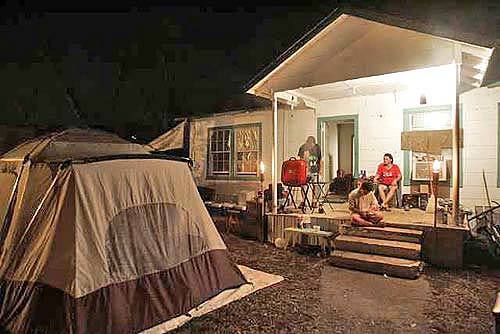
Mark Zirlott, wife Tracy Nelson and their children Cheyenne and Devin have dinner on the front porch of their home in Bayou La Batre, Ala. Zirlott, who unloads shrimp boats for a living, has been out of work since Hurricane Katrina decimated the fishing town. Nearly 80% of Bayou La Batres workers had been involved in the seafood business, which has been the town’s economic mainstay since its founding in 1786. (Genaro Molina / LAT)
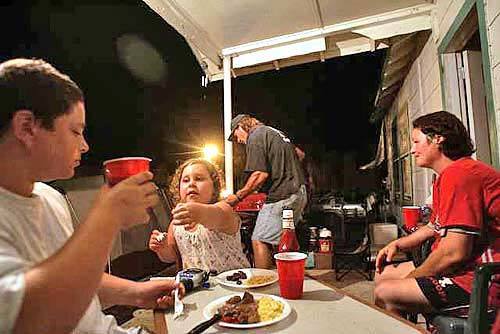
Devin and Cheyenne Zirlott have dinner while their father, Mark Zirlott, barbecues in the light of a lantern and tiki torches in Bayou La Batre, Ala. Zirlott, his wife, Tracy Nelson, seated, and their children live in tents in the yard of their home, waiting for their house to dry out and electricity to be restored. (Genaro Molina / LAT)
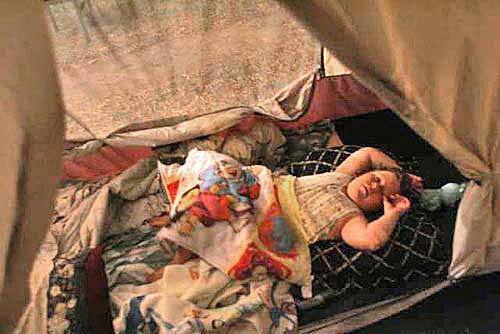
Cheyenne Zirlott sleeps in a tent in the front yard of her home in Bayou La Batre, Ala. (Genaro Molina / LAT)



